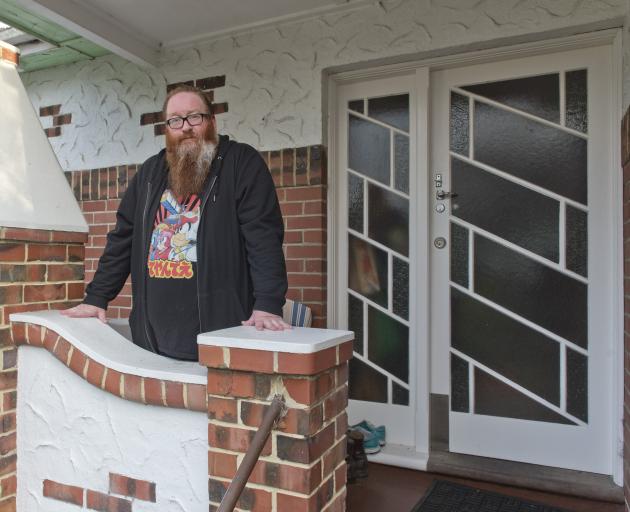
The former Dunedin man has just bought his first home, in Invercargill, after he had eight offers declined over a four-month period last year.
He spoke to the Otago Daily Times in August and said at the time the process had left him feeling "bloody exhausted".
Speaking on Friday, Mr Potter, who gets the keys to his new property this week, said he was "over the moon" to finally get his first house.
After taking a break from house-hunting, Mr Potter decided late last year he would start again in Invercargill.
He asked his employer about working remotely with a view to buying in the southern city where his family was.
But his employer said it had a job going in Invercargill and asked if he would like to apply.
He got the job.
He put an offer on one house at the start of the year — "which I don’t try to think about, it was really nice" — but was declined.
The day that was turned down, he put another offer on a three-bedroom house, which was accepted late last month.
"After a long, long time of trying to make it happen, I was pretty stoked."
He had not had any problem getting a mortgage under the strict lending laws because he had nearly 15 years of savings behind him, he said.
Mr Potter still had to go through an interview, which he said was "fairly thorough".
"Thankfully, because I could show them my long period of saving beforehand, they were pretty happy about that."
He believed first-home buyers had been priced out of the Dunedin market, saying a house like the one he bought in Invercargill would have cost him $200,000 more in Dunedin.
In the end, Mr Potter had put 10 offers on houses, and he had two pieces of advice for first-home buyers.
The first was to be prepared to make sacrifices — "you’ve got to start thinking outside the box these days".
Moving towns, as he had, could be one way of making a sacrifice.
His other piece of advice was not to rely on support from the Government, such as the First Home Grant.
"Have a hard think about what you can put together yourself."
Asked what it felt like being told his offer had been accepted, he said, "relief — almost kind of shock".
"I’d been declined so many times, I just wasn’t prepared for it," Mr Potter said.
CoreLogic’s latest twice-yearly housing affordability report found housing affordability was worsening and had plummeted to a record low, as households now needed nearly 12 years to save for a deposit.
The report showed that in the last quarter of the 2021 financial year, the average property value across New Zealand had reached 8.8 times the average household income, up from 8.3 the previous quarter, and much higher than the long-term average of 5.9.
It would now take 11.7 years to save for a deposit, up from 11.1 years at the end of last September and well above the 9.3 years of a year ago.
CoreLogic chief property economist Kelvin Davidson said housing affordability had got "significantly worse" on that measure.
"Historically, the average years to save a deposit has been 7.9, meaning it now takes almost four years longer ... than in the past.
"Comparing today’s figure to previous cyclical peaks is also worrying, with this measure topping out at 8.1 years in mid-2007 and 9.4 years in late 2016," he said.
— Additional reporting RNZ













